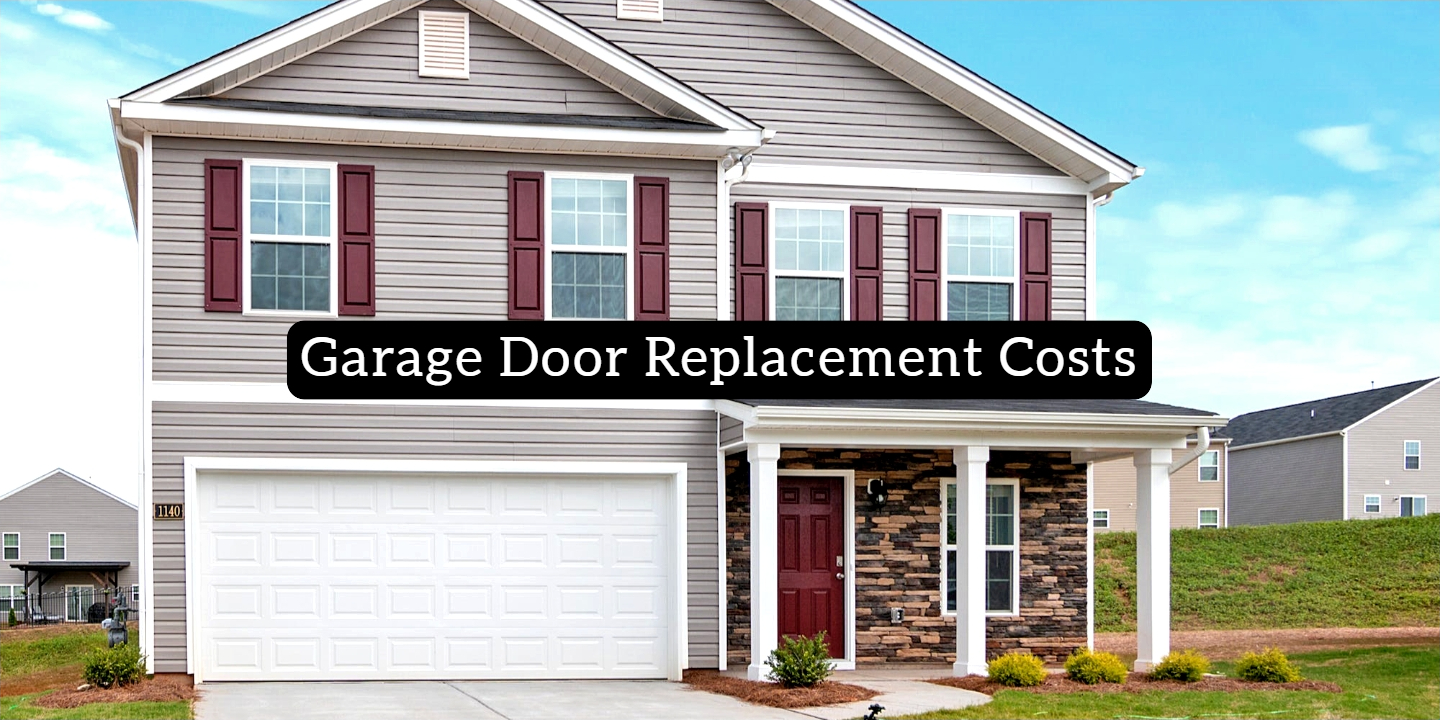The unassuming garage door stands guard over your vehicles and belongings, silently enduring the elements and wear and tear. But like all loyal sentinels, even the sturdiest piece eventually reaches retirement age.
And that’s what we’re here for to guide you through garage door replacement costs in detail. Our guide slashes through the thicket of all the costs, letting you navigate this financial frontier with confidence.
We’ll delve into the key factors that influence the price tag, ensuring you pick the right door before embarking on this home improvement odyssey. Maybe you’ll even decide to DIY it, who knows? Let’s get into it!
How Much Does Garage Door Replacement Cost?
Before diving into specifics, let’s paint a broad picture. Garage door replacement can cost anywhere from $500 to $10,000, with an average national cost of around $1,500. This wide range reflects the multitude of aspects that affect the price tag, like:
- Door Material: Steel, the workhorse of the garage door world, is budget-friendly, while wood or fiberglass doors add a touch of sophistication and come at a steeper price.
- Door Size: Single-car doors are naturally cheaper than their double-car counterparts.
- Features: Fancy bells and whistles like insulation, smart technology, and custom designs will drive the cost up.
- Installation: DIY can save you money, but professional installation ensures proper functioning and peace of mind.
- Location: Labor costs and permit fees can vary depending on your area.
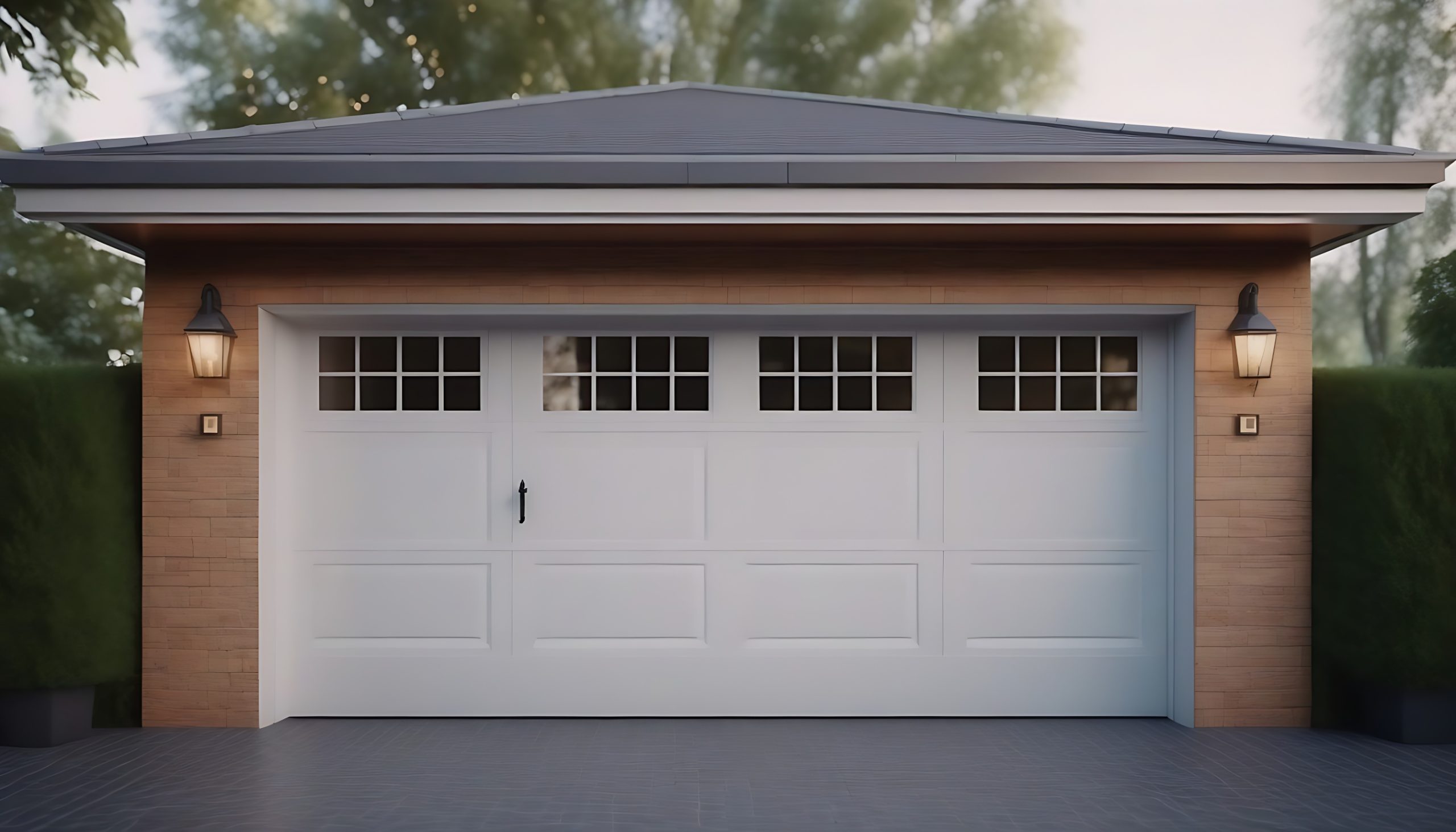
You may also like: 7 Garage Doors Types (Pros & Cons Comparison)
Factors That Contribute to Garage Door Replacement Cost?
The heart of your garage door’s price lies in its material. Each option boasts unique advantages and, of course, price points:
- Steel: The champion of affordability, steel doors offer durability and low maintenance at a budget-friendly $250-$500. Think of it as the trusty workhorse of the garage door world.
- Wood: Craving a touch of elegance? Wood doors elevate your home’s curb appeal with their natural beauty but be prepared for a higher price tag of $1,000-$2,000. They require more upkeep but exude a timeless charm.
- Fiberglass: Seeking a blend of aesthetics and practicality? Fiberglass doors mimic the look of wood while offering superior insulation and weather resistance. Expect to pay $700-$1,500 for this versatile option.
Size Matters: A Matter of Dimensions
Generally, door size plays a significant role in determining the cost. A single-car door will naturally be cheaper than a double-car one, with prices typically ranging from $450-$900 and $1,300-$2,500, respectively. Remember, bigger isn’t always better – pick the size that best suits your needs and budget.
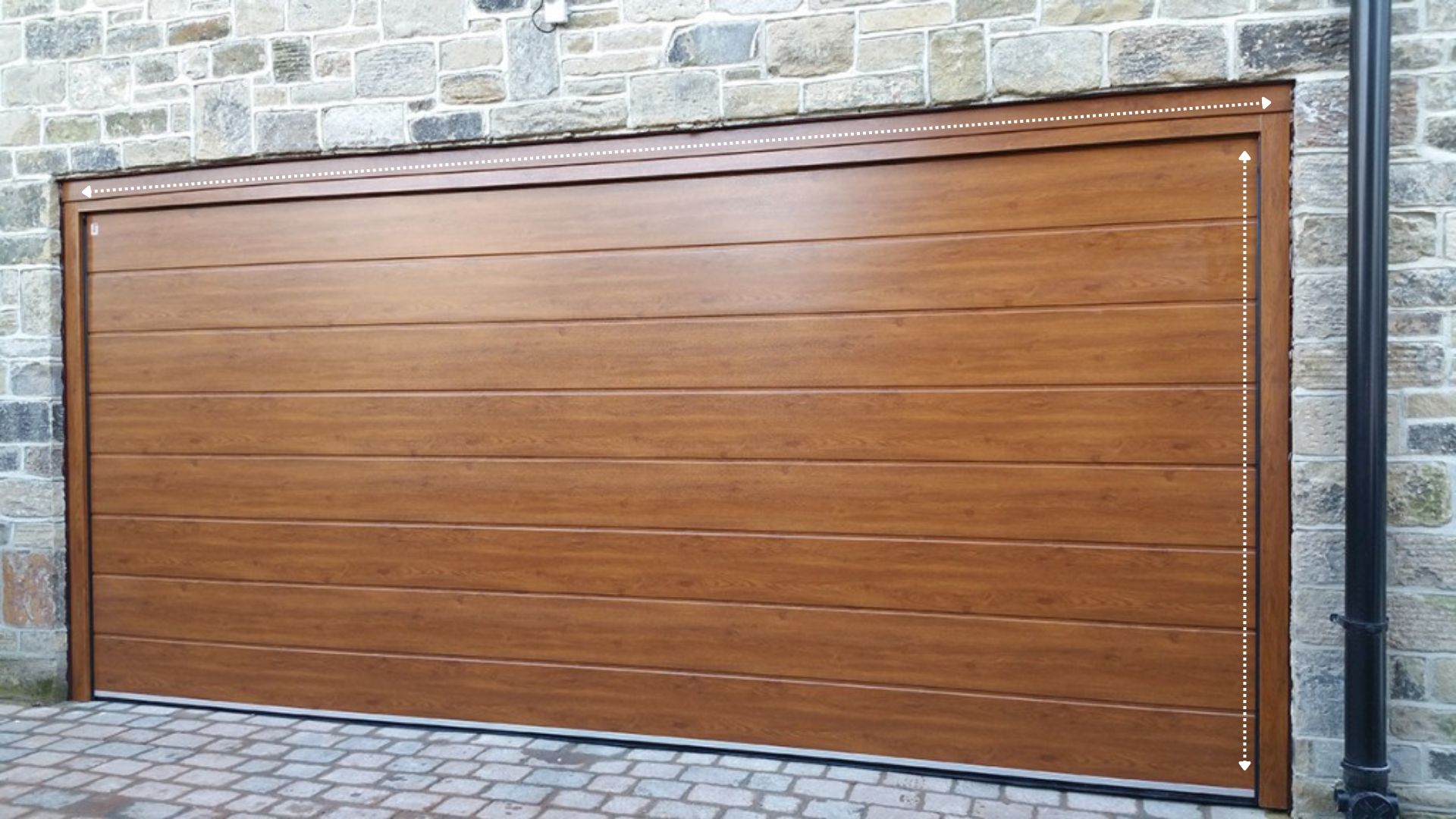
Features and Functionalities: The Bells and Whistles
Beyond the basics, additional features can add flair and convenience, but they also bump up the price tag:
- Insulation: Eco-conscious homeowners can opt for insulated doors, improving energy efficiency but adding $200-$400 to the cost.
- Smart Openers: Tech enthusiasts can revel in the convenience of smartphone-controlled openers, but be prepared to shell out an extra $300-$500.
- Windows: Craving natural light? Windows add a stylish touch but expect to pay $100-$200 per window.
Hidden Costs to Consider
Remember, the sticker price isn’t the only variable in this equation. Permits, disposal fees, unexpected repairs, and additional hardware like tracks and springs can all contribute to the final cost. Factor these potential add-ons into your budget to avoid surprises.
Check also: Steel vs Aluminum Garage Doors (Comparison)
Types Of Garage Doors
Picking the right option can be both an aesthetic and functional decision, and understanding the diverse options available is key to making the perfect selection.
Tilt-Up Doors: These one-piece behemoths exude a classic charm, reminiscent of old-fashioned barns. They swing out in a single motion, requiring extra space in front of the garage. While typically manual, some retract fully or form a canopy over the entrance. Ideal for those who prioritize aesthetics and don’t mind the lack of an automatic opener. The cost range is $400 to $1,5K.
Sectional Doors: The undisputed champions of popularity, these beauties are made of several horizontal panels that glide smoothly into the ceiling. Also, they require minimal space, making them perfect for tight garages. Most come equipped with automatic openers for added convenience. If you’re looking for a versatile, low-maintenance option, sectional doors are your best bet. The cost range is $500 to $1,7K.
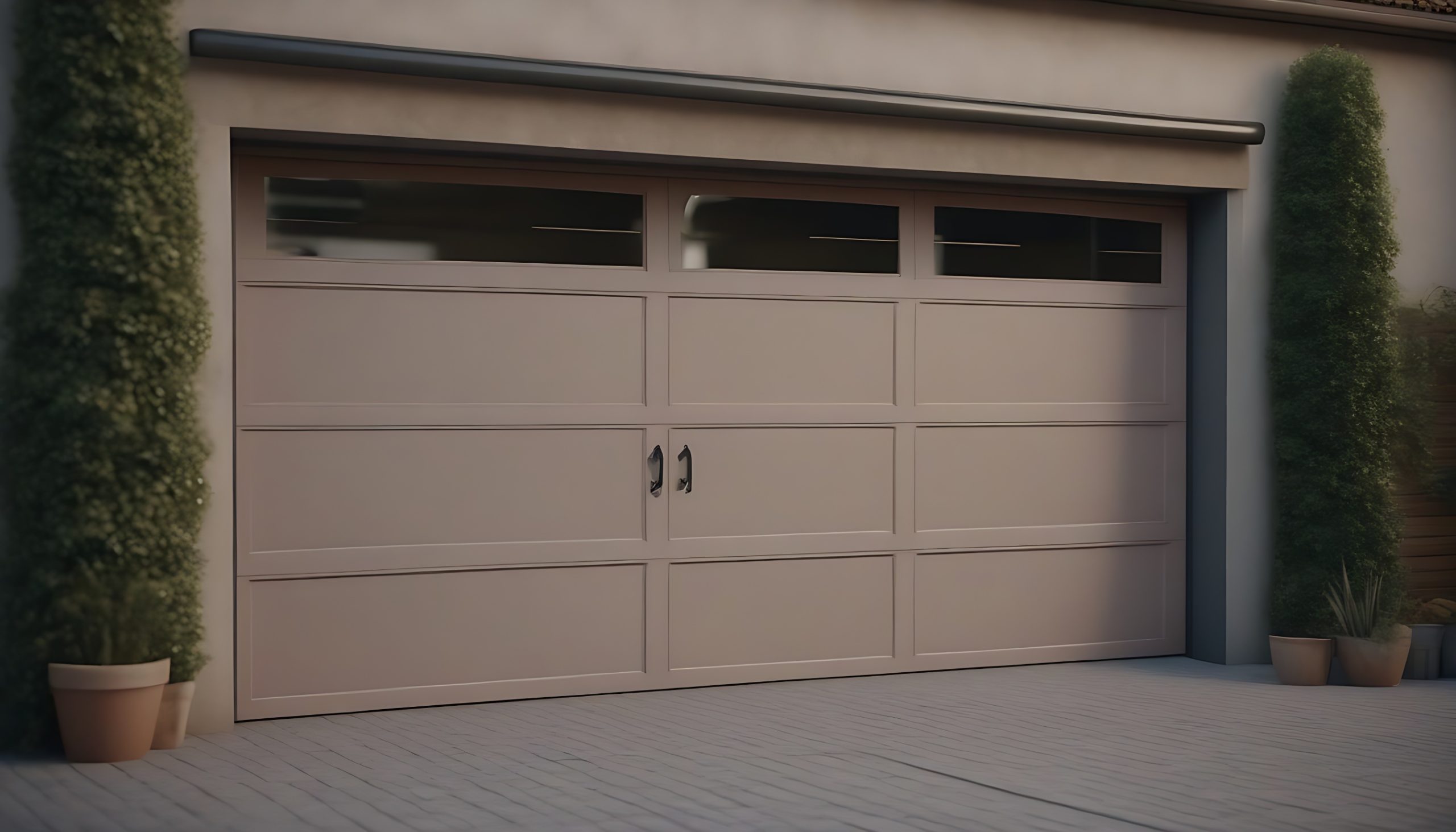
Roll-Up Doors: These space-saving wonders coil up into a compact bundle above the opening, eliminating the need for ceiling tracks. Available in both sectional and one-piece styles, they offer exceptional durability and minimal maintenance. However, their unique installation process can be tricky, so professional help is recommended. The cost range is $600 to $2,5K.
Glass Roll-Up Doors: Craving a touch of elegance? These beauties combine the functionality of roll-up doors with the beauty of glass panels. Choose from insulated or non-insulated options, and enjoy the natural light and visual appeal they bring to your garage. Be prepared for a higher price tag compared to their non-glass counterparts. The cost range is $850 to $6K.
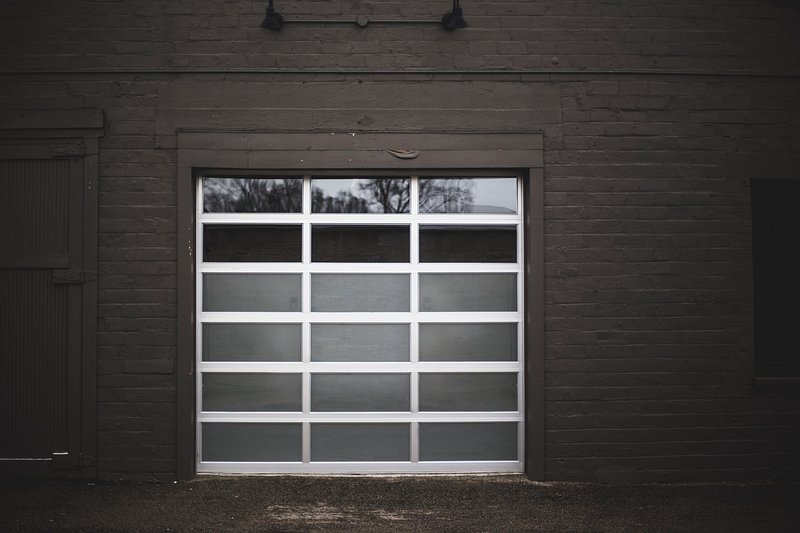
Carriage House Doors: Channel the charm of a bygone era with these double doors that swing open in the middle. Available in a variety of styles, from classic arched tops to modern panel designs, they add a touch of sophistication to any home. Often featuring windows and intricate details, carriage house doors are the perfect choice for homeowners who appreciate timeless elegance. The cost range is $1K to $8K.
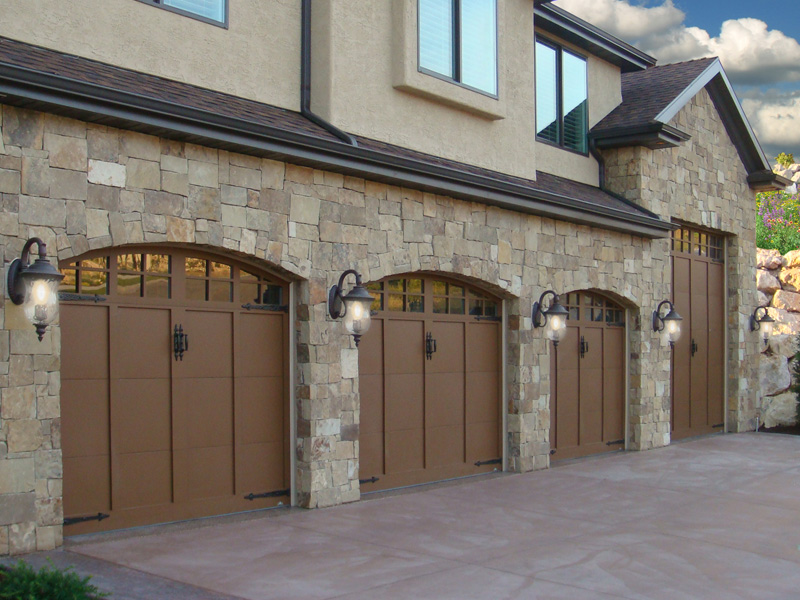
Walk-Through Doors: Imagine skipping the commute from the car to the house – enter the world of walk-through garage doors! These ingenious designs incorporate a smaller door within the main one, allowing you direct access to the garage without opening the entire door. Ideal for those who frequently carry groceries or tools, walk-through doors offer unmatched convenience. The cost range is $700 to $6K.
French Doors: Bring a touch of Parisian chic to your garage with these double doors crafted from glass. While undeniably beautiful, their abundance of glass makes them less suitable for insulation and more prone to breakage. If you prioritize aesthetics over practicality, French doors can add a unique touch to your home. The cost range is $2K and $6K.

Remember:
- Price is a Spectrum: Even within the same style, the costs can vary widely. Always get quotes from multiple pros to ensure you get the best value for your money.
- Invest in Quality: Your door is a significant investment, so pick materials and craftsmanship that will stand the test of time. Opting for a durable door with proper insulation can save you money on energy bills in the long run.
- Style with Substance: Don’t just settle for the first door you see! Consider your home’s architectural style, your needs, and your budget when making your selection. The ideal option should not only complement your home but also enhance its functionality.
Have a look at: 7 Best Garage Door Keypads
What Type Of Garage Door Is The Cheapest?
Leading the charge in the cost-effectiveness race is aluminum. These lightweight doors typically range from $250 to $2,000, making them the most budget-friendly choice on the block. But affordability isn’t their only perk:
- Low Maintenance: Aluminum requires minimal upkeep, resisting rust and corrosion even in humid climates. Say goodbye to endless hours of scraping and repainting!
- Easy on Springs: Lighter than their steel counterparts, aluminum doors put less strain on the opening and closing mechanisms, potentially extending the lifespan of your garage door springs.
- Customizable Flair: Craving a personalized touch? Generally, aluminum doors offer a wider range of customization options compared to other materials. Consider special paint finishes, embossed designs, or even textured styles to make your garage door truly your own.
- Spacious Solutions: Due to their lighter weight, aluminum doors are well-suited for wider garage openings, providing ample space for oversized vehicles or boats.
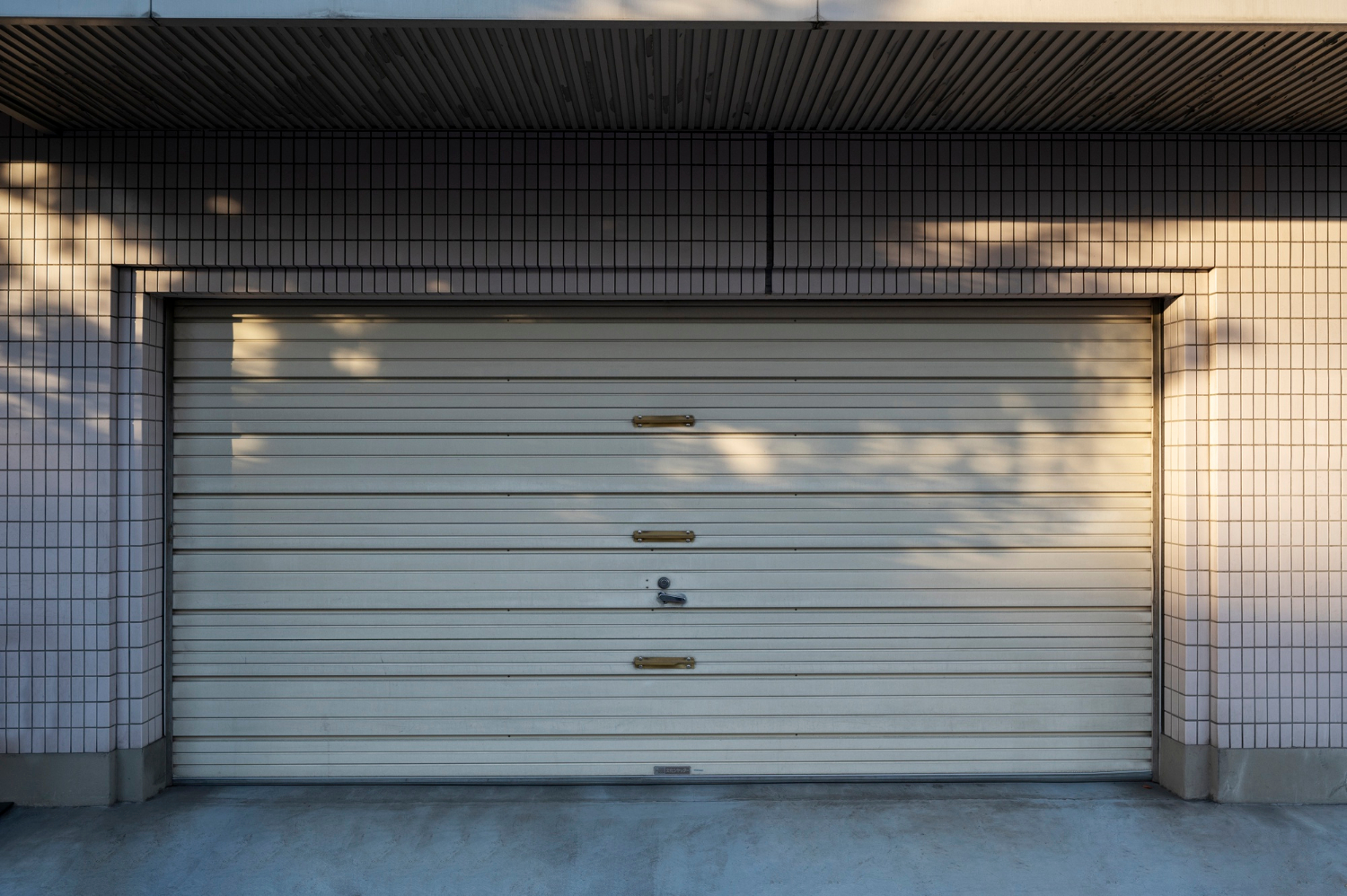
The Cons of Aluminum Doors
Every hero has a kryptonite, and aluminum is no exception:
- Dentability: Aluminum can dent easily, especially compared to sturdier materials like steel. While this might not be ideal for areas prone to hailstorms or falling objects.
- Insulation Woes: Aluminum offers minimal insulation, meaning your garage might become uncomfortably hot in the summer and frigid in the winter. Generally, this can add to energy bills and impact the comfort of your attached living spaces.
- Wind Warriors Beware: In hurricane-prone regions, aluminum’s lightweight nature may not be the best choice. Stronger materials like steel can withstand high winds and protect your belongings better during storms.
You may also check: 7 Best Garage Door Insulation Kits
Can You DIY a Garage Door Replacement?
The prospect of tackling a major home improvement project yourself can be undeniably appealing. Successfully wrestling a new garage door into place would not only save you money but also boost your self-reliance and sense of accomplishment. However, this DIY aria isn’t for everyone.
A Heavy Overture:
Garage doors are not lightweight tenors – they’re hefty bass players that can easily overwhelm an unprepared DIY conductor. Lifting and maneuvering these behemoths is not only physically demanding but also poses a significant risk of injury. One misstep could result in strained muscles, crushed toes, or worse.
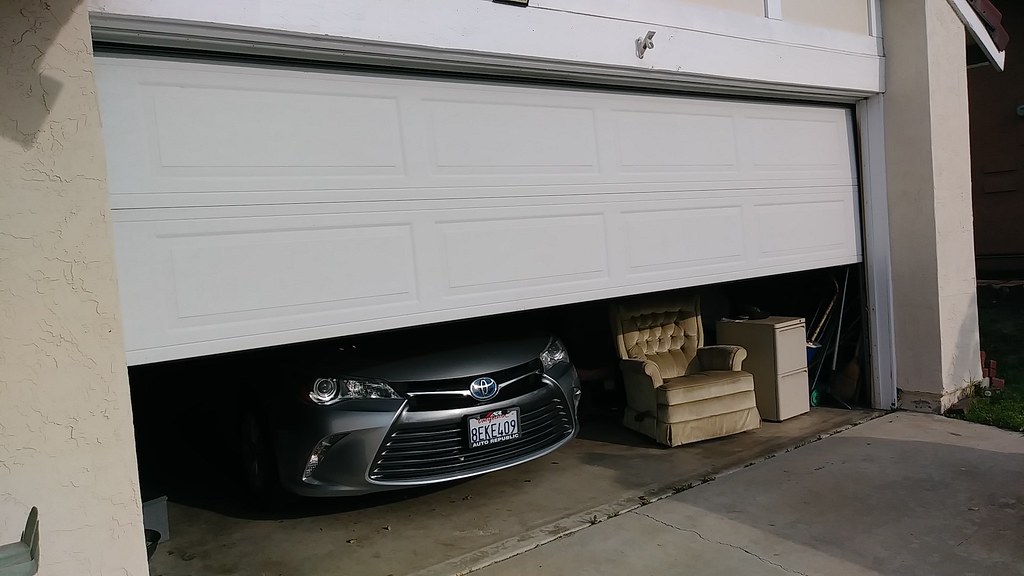
The Delicate Dance of Installation:
Beyond the sheer weight, garage door installation is a complex ballet of precision. Tracks need to be aligned seamlessly, springs flawlessly balanced, and the opener installed with laser-like accuracy. Generally, any misstep in this intricate choreography can lead to malfunctions, safety hazards, and even damage to your new door.
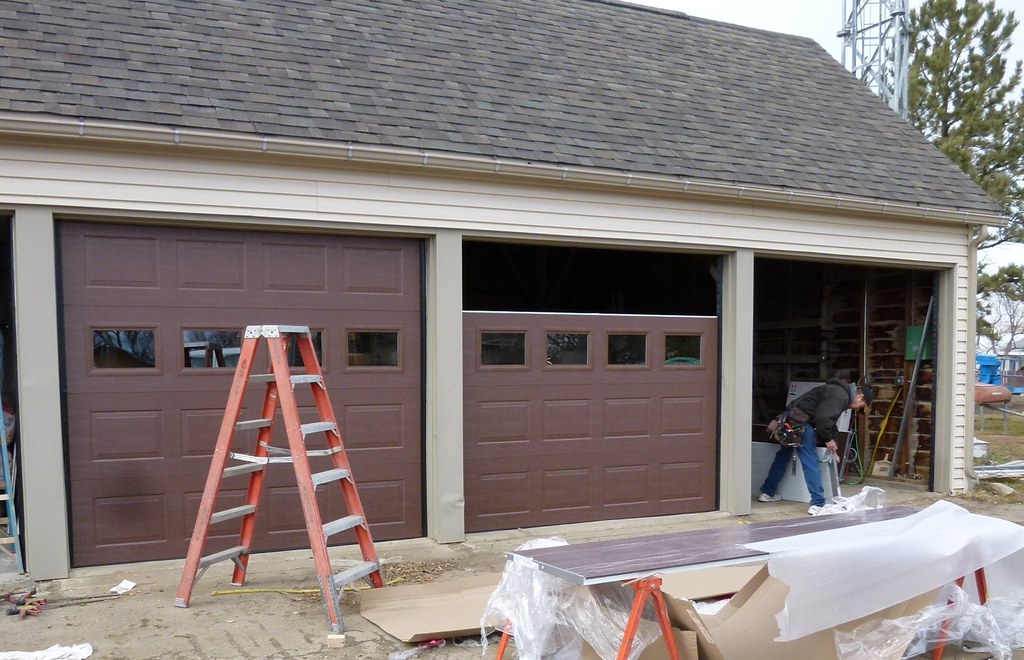
Springing into Trouble:
Garage door springs are not mere accessories – they’re the powerful engines behind the smooth opening and closing of the door. Dealing with these high-tensioned giants requires specialized knowledge and safety precautions. Incorrectly winding or handling a spring can lead to serious injuries, making this a task best left to professionals.
Garage Door Replacement Versus Repair
Minor hiccups like peeling paint or creaky hinges often call for the deft touch of a repair. It’s like tuning an instrument – addressing the specific issues can restore your garage door’s harmonious operation, saving you both time and money. Consider repair if:
- The damage is limited: Cracked panels, rusty hardware, or faulty sensors can often be replaced or repaired individually, bringing the door back to life.
- The age is favorable: If your door is relatively young (under 10 years old) and well-maintained, repair is likely a viable option.
- Cost-effectiveness reigns: Repairs are typically significantly cheaper than full replacements, making them ideal for budget-conscious homeowners.

However, there are times when the repair song has ended, and a new composition – replacement – is required. Consider a full overhaul if:
- Damage runs deep.
- Time has taken its toll.
- Safety concerns arise.
- Energy bills escalate.
- Curb appeal craves a boost.

